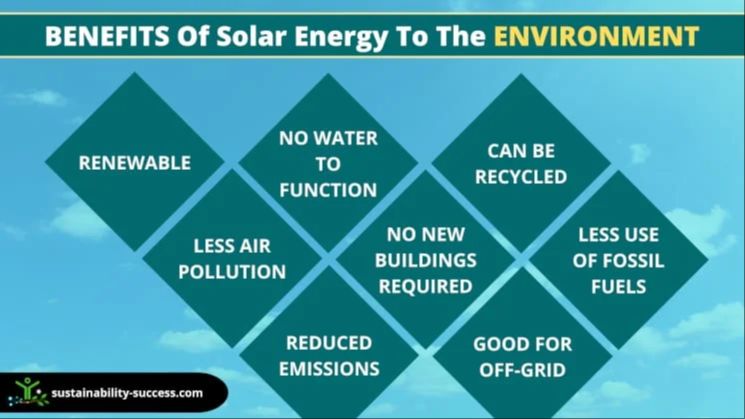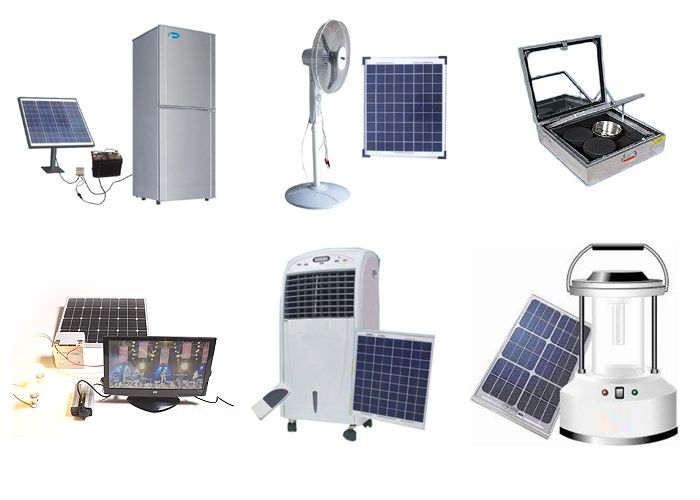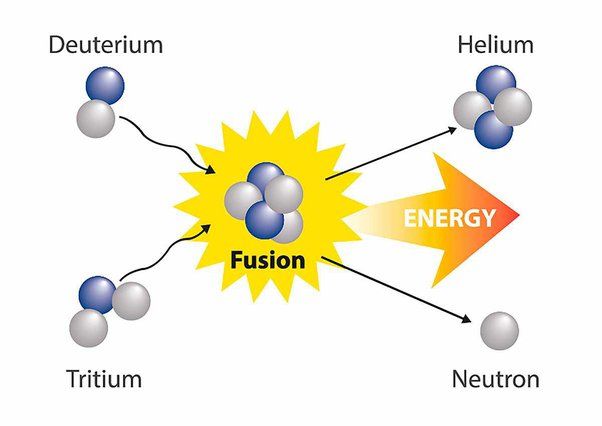How Does Solar Energy Benefit Us?
Introduction: The Promise of Solar Power

Solar energy refers to the energy from the sun that is captured by solar panels to generate electricity or heat homes and businesses. Along with wind, hydropower, geothermal, and biomass, solar power is considered a renewable energy source, meaning it is constantly replenished and does not produce greenhouse gas emissions. In contrast, fossil fuels like coal and natural gas release carbon dioxide, which have been shown to cause climate change. Renewable energy sources are seen as critical to curbing climate change since they do not contribute additional planet-warming emissions. By harnessing the abundant power of the sun, solar energy could play a major role in powering communities sustainably and helping nations achieve their climate goals.
Reduces Reliance on Fossil Fuels
Fossil fuels like coal, oil and natural gas are finite resources that damage the environment when burned to generate electricity. Extracting and transporting fossil fuels leads to pollution, and burning them releases greenhouse gases like carbon dioxide that contribute to climate change.
Solar energy allows us to generate electricity without the need to burn fossil fuels. Solar panels convert sunlight directly into electricity. Once installed, solar panels provide clean energy for decades with very little ongoing environmental impact.
Solar energy reduces our dependence on polluting energy sources that harm public health. According to research, solar and wind energy could provide 94% of US electricity generation and eliminate nearly 3/4 of carbon emissions by 2050 (https://www.sciencedirect.com/science/article/pii/S0360544219304967). The transition to renewable sources like solar is critical to fighting climate change and protecting the planet.
Improves Public Health
Burning fossil fuels like coal and natural gas to generate electricity creates harmful air pollution that negatively impacts public health. According to the EPA, inhaling particulate matter produced by fossil fuel combustion can irritate airways, damage lung tissue, and increase the risk of developing cancer and heart diseases (EPA). In 2019, air pollution exposure accounted for 6.7 million deaths globally (Palmetto). By reducing reliance on polluting fossil fuels, solar energy helps improve air quality and protect human health. When solar replaces fossil fuels, fewer pollutants are emitted into the air we breathe. A 2013 study found that avoiding the health impacts of air pollution thanks to solar offset between $76 and $210 million in public health costs in the United States that year alone (Energysage). Solar energy has the power to significantly reduce respiratory and cardiovascular issues caused by dirty energy production.
Stimulates the Economy
The solar energy industry stimulates economic growth by creating new jobs. According to the U.S. Department of Energy, the number of solar jobs has grown significantly in recent years, reaching over 400,000 jobs in 2021.
There are jobs created in solar panel manufacturing, installation of solar systems, and maintenance for existing solar installations [1]. The solar workforce grew by 9% in 2021, nearly five times faster than overall U.S. employment growth [2]. Worldwide, renewable energy jobs increased by over 700,000 in just one year, reaching 12.7 million jobs in 2022 [3].
In addition to job creation, solar energy reduces spending on imported fossil fuels. Relying more on domestic solar power improves energy independence and keeps energy spending within the local economy.
Lowers Electricity Costs
One of the biggest benefits of solar energy is that it can lower electricity costs for homeowners and businesses. Sunlight is free, so there is no ongoing fuel cost to generate electricity from solar panels. Once the solar panels are installed, sunlight can be turned into electricity at no additional cost. This means that solar energy has very minimal operating expenses compared to fossil fuel power plants.
As solar technology improves and is adopted more broadly, the cost of solar panels and associated equipment continues to fall. According to the Solar Energy Industries Association, the cost to install solar has dropped by more than 70% over the last decade.
For example, a typical 5 kilowatt solar system for a home cost on average $3 per watt to install in 2010. By 2019, that cost had fallen to $2.70 per watt. In some cases, costs have dropped as low as $1 per watt.
This reduction in solar installation costs means homeowners and businesses can invest in solar at an affordable price point. Over the system’s 25-30 year lifespan, the electricity savings from displacing grid power leads to a positive return on investment.
Studies have shown that solar panels can reduce electricity bills by up to 62%. The exact savings will depend on factors like sunlight availability in the local area and electricity rates. But for many homes, going solar can cut their electric bill by $100-$150 per month.
Increases Energy Access
Solar energy can help increase access to electricity, especially in rural or remote areas that lack connection to the traditional grid. Solar microgrids can provide power to these off-grid communities in a cost-effective and sustainable way. Small-scale solar projects allow localized, decentralized electricity generation https://www.energy.gov/eere/solar/equitable-access-solar-energy.
In urban areas, rooftop solar systems allow households and businesses to generate their own electricity. This expands energy access by supplementing power from the grid. Rooftop solar makes energy more democratic by allowing people to become producers as well as consumers of electricity https://www.georgetownclimate.org/adaptation/toolkits/equitable-adaptation-toolkit/enhancing-access-to-solar-energy.html.
Overall, solar technology allows electricity generation at the point of use, empowering more people with access to clean, renewable energy.
Improves Energy Security
Solar energy allows for greater energy independence and resilience by reducing reliance on imported fossil fuels. According to a report by the National Renewable Energy Laboratory, renewable energy sources like solar can support energy security by diversifying electricity generation. Relying solely on fossil fuels leaves nations vulnerable to disruptions from political conflicts or shortages. Solar energy can be generated domestically, providing a local and dependable source of power.
The International Energy Agency states that “Renewable power’s growth is being turbocharged as countries seek to strengthen energy security.” By investing in solar technology, nations can avoid disruptions from fossil fuel imports. Solar energy allows countries to harness local resources and gain energy independence. This resilience and self-sufficiency is a key benefit of transitioning to renewable sources like solar.
Supports Sustainability
Solar energy is more sustainable than fossil fuels because it does not produce greenhouse gases or toxic waste (1). Solar panels convert sunlight directly into electricity without any emissions. This brings us closer to carbon neutral electricity goals and a more sustainable energy system. According to the U.S. Department of Energy, “As a renewable source of power, solar energy has an important role in reducing greenhouse gas emissions and mitigating climate change, which is critical to environmental and public health and safety” (2). While solar does have some environmental impacts from manufacturing and land use, it is far more sustainable than coal, oil, and natural gas. Widespread adoption of solar energy will be a critical step on the path to a zero-emissions energy system.
(1) https://formesolar.com/how-solar-energy-is-a-cornerstone-to-sustainability/
(2) https://www.energy.gov/eere/solar/solar-energy-wildlife-and-environment
Can Be Implemented Broadly
Solar energy can be implemented in a variety of settings across diverse geographies. Rooftop solar panels on homes and businesses allow for decentralized, distributed power generation, further advancing energy independence and security. In 2021, around 4% of U.S. single family homes had rooftop solar panels installed (Pew Research). Community solar farms allow households to buy or lease portions of larger shared solar projects and receive credits on their electricity bills. By 2022, community solar had achieved 1.5 GW of installed capacity in the U.S. (NREL). Utility-scale solar farms can generate hundreds of megawatts of power and feed into the electric grid. The U.S. currently has over 100 GW of installed utility-scale solar capacity. Solar works effectively in most climates with adequate sunlight and its modularity allows it to be scaled up or down as needed.
Conclusion
Solar energy has multiple benefits that make it an important part of our energy future. As discussed, it reduces reliance on fossil fuels, improves public health by reducing pollution, stimulates the economy through job creation and investment, lowers electricity costs over time, increases energy access, improves energy security by utilizing an infinite domestic resource, and supports sustainability through renewable clean energy generation.
Solar power can be implemented broadly through rooftop solar on homes and businesses, as well as large-scale solar farms and community solar projects. Given solar’s potential as an abundant, affordable, and clean energy source, it will play a major role in the transition to a more sustainable energy system.






